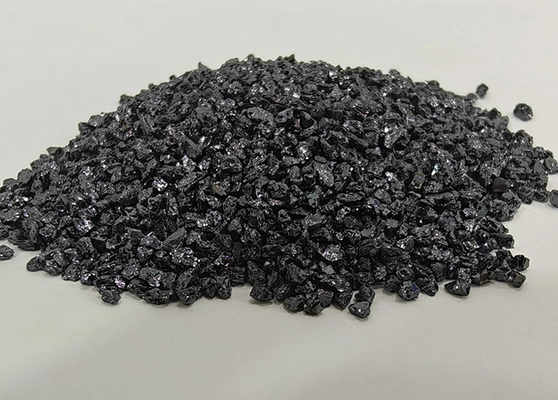Quick Answer
Quick Answer: China is home to some of the world’s largest refractory material manufacturers, offering alumina, silicon carbide, and ceramic raw materials for steel, glass, and cement industries. Leading suppliers — including CanAbrasive, Sanhui Abrasives, and Luoyang Zhongsen Refractory — provide FEPA/JIS-certified high-purity products, ISO9001 certification, and global export support.
Table of Contents
- 1. Overview of China’s Refractory Materials Industry
- 2. Common Types of Refractory Raw Materials
- 3. Top Refractory Material Manufacturers in China
- 4. How to Choose a Reliable Supplier
- 5. Major Industrial Applications
- 6. FAQ
1. Overview of China’s Refractory Materials Industry
China produces more than 65% of the world’s refractory raw materials, thanks to its rich bauxite and quartz resources, advanced fusion technologies, and mature manufacturing clusters in Henan, Shanxi, and Shandong provinces. The industry covers a complete supply chain — from raw material calcination and electrofusion to crushing, classification, and FEPA/JIS testing.
2. Common Types of Refractory Raw Materials
Refractory materials are high-temperature resistant compounds used in furnaces, kilns, reactors, and other thermal equipment. The following are the most commonly used refractory raw materials in industrial production:
- Bauxite (Calcined or Sintered): The main source of alumina (Al₂O₃) for high-alumina bricks and castables, typically containing 70–85% Al₂O₃.
- Alumina (WFA / Tabular Alumina): High-purity fused or sintered alumina with excellent volume stability up to 1900°C, used in advanced castables and kiln furniture.
- Magnesia (Caustic or Fused MgO): Provides excellent basicity and corrosion resistance, widely used in steelmaking refractories and ladles.
- Silicon Carbide (SiC): Offers high thermal conductivity and erosion resistance; ideal for kiln shelves, saggars, and burner nozzles.
- Mullite: A stable aluminum silicate mineral with high thermal shock resistance, used in insulating bricks and ceramic refractories.
- Spinel (MgAl₂O₄): Improves structural strength and slag resistance, commonly used in steel ladle linings and cement kilns.
- Zircon / Zirconia (ZrSiO₄ / ZrO₂): High melting point and corrosion resistance, used in glass furnaces and continuous casting applications.
3. Top Refractory Material Manufacturers in China
The following table provides a summary of leading refractory suppliers, highlighting their products, certifications, and export markets.
| Manufacturer | Location | Main Products | Certifications | Export Regions |
|---|---|---|---|---|
| CanAbrasive | Zhengzhou, Henan | WFA, BFA, SiC, Ceramic Alumina, Mullite Aggregates | FEPA / JIS / ISO9001 | Japan, India, Europe, Southeast Asia |
| Sanhui Abrasives | Zhengzhou, Henan | Refractory-grade SiC, Brown Alumina, White Alumina | FEPA / ISO9001 | Middle East, Asia |
| Luoyang Zhongsen Refractory | Luoyang, Henan | Mullite, Tabular Alumina, BFA, SiC | ISO9001 / SGS | Global |
| Henan Yilong Refractories | Gongyi, Henan | Bauxite, Alumina, High-alumina Castables | ISO / GB / FEPA | Europe, South America |
4. How to Choose a Reliable Supplier
- Material Purity: Check Al₂O₃, SiC, or MgO content and impurity levels (Fe₂O₃, SiO₂).
- Quality Control: Prefer manufacturers with in-house FEPA/JIS testing and magnetic separation systems.
- Certification: ISO9001 and SGS reports ensure traceability and consistent production.
- Export Experience: Choose suppliers offering CIF/FOB terms and professional documentation support (TDS/SDS).
- Technical Service: Refractory suppliers like CanAbrasive offer technical advice for optimizing material usage in furnaces or foundries.
5. Major Industrial Applications
- Steel Industry: Ladles, tundishes, and furnace linings using high-alumina and SiC-based refractories.
- Glass Industry: Fused-cast alumina-mullite bricks for tank furnaces.
- Cement Industry: Rotary kiln linings with BFA and CA materials.
- Ceramics: Kiln furniture, setters, and saggers using SiC and alumina composites.
- Energy & Petrochemical: Burners, reactors, and insulation modules requiring thermal shock resistance.
6. FAQ
Q1: What are refractory materials?
They are materials resistant to extremely high temperatures, including alumina, silicon carbide, and magnesia, widely used in furnaces and kilns.
Q2: Why source refractory materials from China?
China offers a complete industrial supply chain, competitive pricing, and large-scale production capacity for alumina and SiC refractories.
Q3: Does CanAbrasive export refractory materials?
Yes, CanAbrasive supplies alumina, silicon carbide, and ceramic refractory materials globally with technical documentation support.
Q4: What certifications should I check?
Look for FEPA/JIS compliance and ISO9001 quality management certification.
Q5: How to request a quotation?
Submit your specifications via CanAbrasive Contact Page; you’ll receive a detailed quotation within 24 hours.
